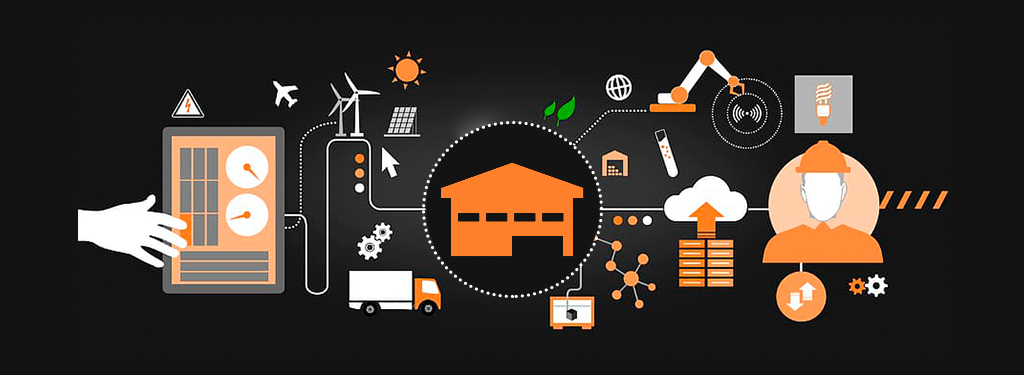
Digitalizing Supply Chain Management
by Nukala Kameshwar Rao
With the aggressive pace of economic growth, India is on a fast track to development, powered by innovation and disruption across key sectors, encouraging government policies, and robust and aggressive growth in IT. Globally, as in India, the logistics sector is undergoing an unprecedented transformation, fuelled by innovations in IT and digitization. Despite this, the Indian logistics sector, regarded as the backbone of a healthy economy, is highly fragmented and unorganised. As a result, the logistics spend in India currently amounts to 14-15% of GDP compared to less than 8% of the GDP spend in developed economies. However, with focused initiatives on manufacturing, like the Make in India campaign, and thrust on digitisation with the Digital India campaign, the Indian logistics sector has slowly begun its disruptive transformation. According to a study by The Associated Chambers of Commerce and Industry of India (ASSOCHAM), the logistics market in India is expected to grow to USD 307 billion by the year 2020, recording a CAGR of 16% on an average.
Some key areas where digitisation will play a major role in transforming logistics into robust, IT-enabled intelligent services include Machine Learning and Data Analytics Access to authentic and reliable data has been the biggest boon of digitisation.
For the logistics sector as well, the intelligent analysis of data has helped create a massive transformation in not just managing client expectations but also to increase efficiency, cut costs, and drive growth.
Some key areas where data analytics is helping shape logistics include:
-Improved operational efficiency due to data-enabled intelligence that enables effective decision making
-Efficient management and tracking of inventory due to real-time data updates created through a data bank on routes and progression reports
-Improved customer experience due to optimised, timely, and effective execution and forecasting of logistics needs of clients.
IoT
Internet of Things (IoT) can be explained as the ability for multiple physical objects to connect to the internet and share data, without human intervention. This has effectively transformed several businesses including logistics. Many logistics experts are already using these new resources to improve systems and supply networks, reduce costs, and look for opportunities to generate more revenue too.
Listed below are some practical applications of IoT in logistics:
-Safety in supply chain management by reducing human interactions and the risk of accidents
-Implementation of sustainable processes through optimisation of resources, including energy consumption
-Seamless and end-to-end visibility of the supply chain through digitally connected devices
-Effective and optimised warehousing and yard management by reducing human intervention and enabling more machine-to-machine interaction
-Effective fleet management through digitally connected devices that can assist in tracking maintenance schedules, vehicle usage, service routes and cut fleet downtime.
Artificial Intelligence (AI)
AI has been a buzzword in the supply chain world for a while.
Worldwide, logistics and supply chains are undergoing a transformation as more “artificial intelligence” is being employed to manage both domestic and international movement of goods. Some key applications of AI include:
-Reduction in human intervention and workforce and increased efficiency in delivery and warehousing (including sorting and distribution centres)
-The efficient and intelligent harnessing of big data to drive cost-effective supply chain management
-Intelligent ‘predictive analysis’ that is based on an intelligent analysis of vast amounts of data collected over a period of time, helps avert crisis or mismanagement.
BlockChain
What is blockchain? Here’s a simple explanation. A blockchain is a distributed, digital ledger. The ledger records transactions in a series of blocks. It exists in multiple copies spread over multiple computers, typically known as nodes. A Blockchain is a type of diary or spreadsheet containing information about transactions. Each transaction generates a has. If a transaction is approved by a majority of the nodes then it is written into a block. Each block refers to the previous block and together make the Blockchain
4 ways Blockchain can transform the Supply chain
- New Blockchain-enabled platforms will allow easy coordination of documents on a shared distributed ledger, making physical paperwork largely unnecessary
- Organizations need up to date, secure and authentic data to make decisions. Blockchain ensures trustworthy data across the transportation and logistics ecosystem since the entire network contributes to data validation
- With the rising demand for same-day and one-hour delivery services, traditional tracking technologies will not scale. Blockchain technology provides a scalable, immediate solution for order tracking and authentication
- By using smart contracts, approvals and customs clearance can be quicker and more efficient, reducing processing times for goods at customs checkpoints